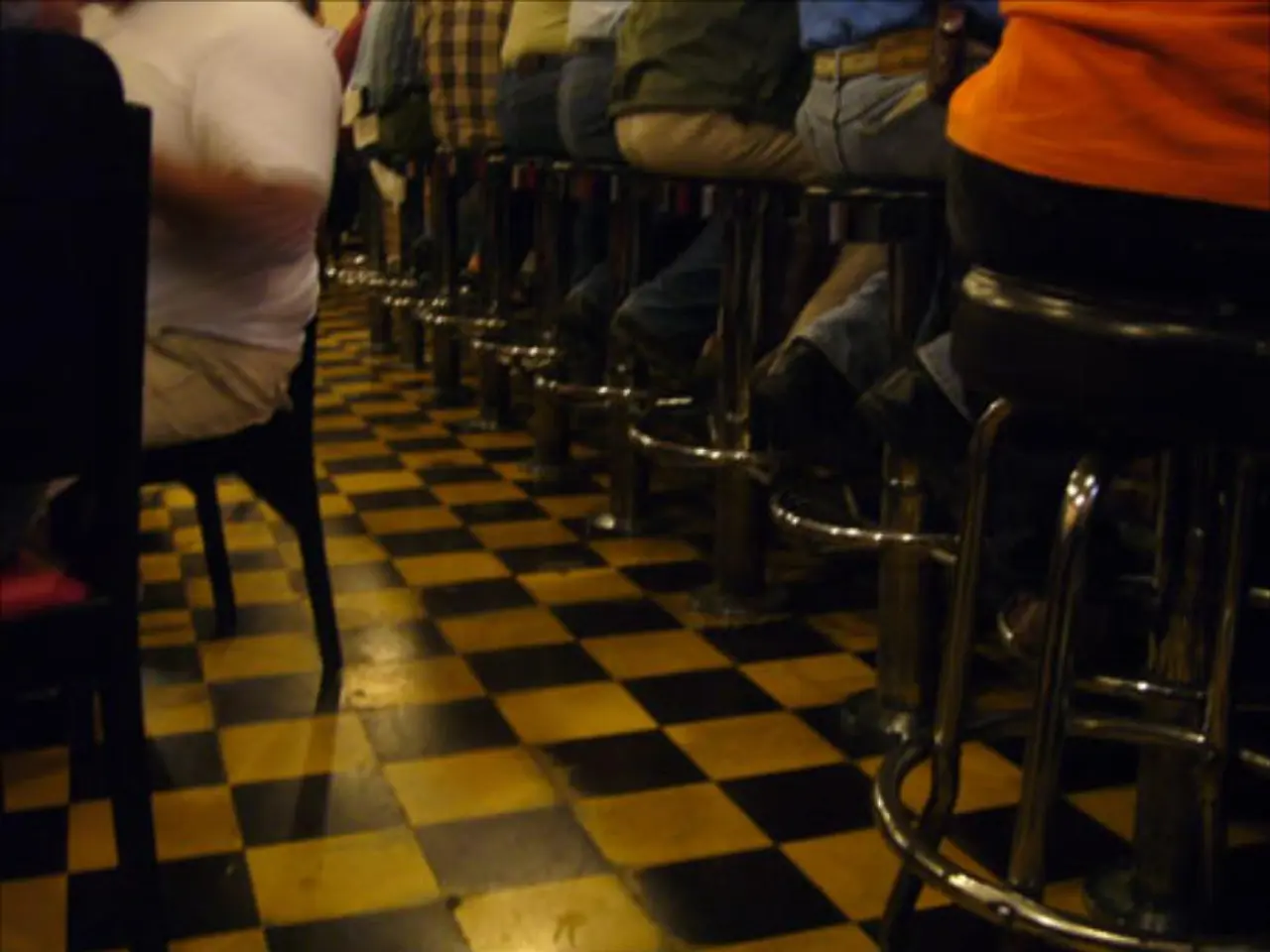Stuck Poop Predicament: Root Causes, Remedies, and Preventative Measures
In the last stage of digestion, people expel waste products from their body in the form of feces, or stools. However, for some individuals, this process can be a challenge, with constipation being a common issue. This article offers a practical guide on long-term strategies for managing constipation and preventing stool impaction during bowel movements.
The doctor can rule out underlying illnesses and offer tips on preventing constipation in the long term. A gradual, multi-pronged approach combining dietary changes, lifestyle modifications, and behavioral adjustments is key to managing constipation effectively.
- Increase Dietary Fiber Intake
Incorporating more fiber into your diet is crucial. Aim for 22-34 grams per day from diverse sources such as fruits, vegetables, whole grains, nuts, legumes, and seeds. Both soluble and insoluble fiber help: soluble fiber absorbs water to soften stool, while insoluble fiber adds bulk to speed transit.
- Stay Well-Hydrated
Fiber works best with adequate fluids to keep stool soft and moving smoothly. Ensure you drink plenty of water throughout the day.
- Establish a Regular Bowel Routine
Ideally, schedule your bowel movements after meals to utilize the gastrocolic reflex, which stimulates colon activity.
- Adopt Proper Toileting Posture
Using a footstool to achieve a squatting position can make stool passage easier and reduce the chance of stool sticking halfway out. This posture straightens the rectoanal angle, facilitating a smoother bowel movement.
- Engage in Regular Physical Activity
Regular exercise promotes gut motility, including exercises like walking and yoga.
- Behavioral and Relaxation Techniques
Diaphragmatic breathing or abdominal massage may support bowel function and ease stool passage.
- Limit Processed Foods and Excessive Dairy or Meats
These can worsen constipation.
When these measures are insufficient, doctors may recommend medications or, rarely, surgery. Consultation with a healthcare provider or dietitian is important, especially when gastrointestinal conditions like IBS or chronic constipation persist.
Certain health conditions, such as hypothyroidism, diabetes, Hirschsprung disease, Parkinson's disease, colon cancer, pelvic floor dysfunction, depression, and anxiety, can cause constipation. Changes in a person's daily routine, such as travel or pregnancy, may also affect digestion.
It's essential to remember that anyone who has regular constipation or notices blood in their stools should speak with their doctor. Fecal impaction, where hard, dry feces build up in the rectum or colon, is more common among older adults who take nonsteroidal anti-inflammatory drugs (NSAIDs) or those who are hospitalized or in institutional care. Hemorrhoids, or swollen veins in the lower part of the rectum, can make defecation painful and may be mistaken for a stuck poop. Having fewer than three bowel movements in a week can indicate constipation.
In summary, a gradual, multi-pronged approach combining dietary fiber, hydration, toileting habits, physical activity, and sometimes professional guidance offers the best long-term solution for managing constipation and preventing stool impaction during evacuation.
- The doctor may suggest increasing dietary fiber intake to combat constipation, recommending daily consumption of 22-34 grams from various sources such as fruits, vegetables, whole grains, nuts, legumes, and seeds.
- Staying well-hydrated is another essential part of managing constipation, as adequate fluids keep stool soft and facilitate smooth movement.
- Establishing a regular bowel routine after meals can help stimulate colon activity and improve bowel movements.
- Adopting proper toileting posture, like using a footstool to achieve a squatting position, can make stool passage easier and reduce the likelihood of stool impaction.
- Engaging in regular physical activity should also be included in managing constipation, as exercise promotes gut motility and supports overall health-and-wellness.
- Incorporating behavioral and relaxation techniques like diaphragmatic breathing or abdominal massage may further support bowel function and aid in stool passage. However, limiting processed foods, excessive dairy or meats may be necessary to prevent worsening constipation.




